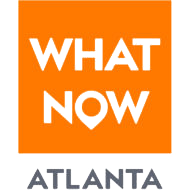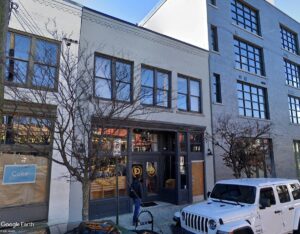Architect releases flyby shots of new Hilton Garden Inn/ Homewood Suites hotel on the corner of 10th and William Streets.
[iframe src=”http://vimeo.com/moogaloop.swf?clip_id=19728827&server=vimeo.com&show_title=1&show_byline=1&autoplay=0″ width=”95%” height=”480″]
Sign up now to get our Daily Breaking News Alerts
Opt out at anytime






24 Responses
Looks nice. The plot of land in real life though still seems too small. Obviously, they know what they’re doing. Looking forward to a good use for that land!
While amazingly boring, there is one nice thing about this. If Atlanta ever gets it’s act together and starts acting like a city, this could be transformed into mixed use apartments/retail/office. It looks like it has good sidewalk frontage and the parking is hidden.
@Urbanist
It isnt just an Atlanta problem. Until America gets over its drunk obsession regarding property values and homes/condos serving as investment vehicles it will be difficult to find any city besides the mainstays (New York, Chicago, Boston) that offers a balanced mix of for sale and for rent units. Until then, everyone will be too afraid of rental properties and their impact on property values.
Yeah, there’s a very simple way to fix that problem, and the answer is not to build massive communities on the fringes of the city, that make it impossible for organic growth.
Simple solution on paper. But getting these fringe communities to stop thinking of just themselves and development for the sake of growth and instead get them to think more as a region poses a huge hurdle.
I like the fact that many of these newer buildings take the parking into account and host it in the lower floors of the building. This is unlike any other city I have visited, which wants the duality of walk ability like New York or Boston along with Atlanta’s car-centric culture. It is a little boring but it is a Homewood suites, no “W” neon and topiary bushes required. It does look a lot like the High Museum.
Calling the solution a “huge hurdle” is just an excuse. By creating incentives, or rather anti-incentives, for those who don’t think regionally you can essentially force it. Not politically popular, but if you want to see your city survive, it’s necessary. And it would be a HUGE mistake to think that this city, or it’s region will have any future, if it doesn’t embrace the idea of a more urban-centric plan.
I don’t know why people think it’s so tough to promote/encourage development in the city in a slow, methodical, proper way.
@Urbanist:
It’s not tough to promote or encourage development in the city in a slow, methodical, proper way. It’s easy to do just that – promote and encourage – if you’re on the sidelines like me, most people reading this blog, and possibly you. It’s tough to actually do it if you’re a developer, regulator, official, or anyone with a major physical, financial, or legal stake in such development.
Also, a solution like you propose – basically stopping suburbia in its tracks – qualifies as a huge hurdle to your ideal future. One that can be overcome, maybe, but it’s not as simple as you want it to be. I know you like to criticize, but we can call it something besides a huge hurdle if it’d make you happy. Difficult? Not easy? Complicated? No matter what you personally think the descriptor should be, it won’t be simple, fast, or without a pretty major social change.
It frustrates me to see people oversimplifying complex problems – for your example, totally reordering urban and suburban land use, changing social attitudes, and completely re-prioritizing the way our urban regions function and build themselves. They’re not simple issues, and they merit more than simplistic pie-in-the-sky discussion – especially if it’s just armchair planning. It’s disappointing to see you bag on someone because they don’t think that these things will be easy. I quit reading WhatNowAtlanta a while ago because of things like this, and I’m sad to see that I’m still not missing that much.
It’s kind of bland but it’s a good use for the location. Too bad they aren’t giving a better treatment to the parking deck levels. It’s quite obvious what they’re building is a hotel plopped on top of a deck. Wish they would have continued the facade of the upper floors down to the street, at least at the corner of the building. Anything to tie the top and the botton together so it doesn’t look like a seven layer cake or a building on stilts.
At least if the food service is too expensive the customers and run down the block to Checkers. Oh and someone needs to do something about the dual turn lanes from Williams to 10th Street. Apparently most people don’t understand that you can’t willy nilly switch lanes while turning in the middle of the intersection. Same goes for the double turn lane from 10th to West Peachtree. Maybe some extra signage would help.
“this could be transformed into mixed use apartments/retail/office”
Its a freaking hotel! Which is a perfect use for a small site in this location (overlooking the highway) and it has space for ground floor retail. And do you know what hotels are for??? People!.. People that add to the local economy on by visiting the city. Everything doesn’t need to be an apartment in this or any city.
oooh a Taco Bell/Pizza Hut/KFC hotel!!!
Urbanist can’t just say, “Good, we’re getting some semi-decent infill in Midtown. I hope they do well!”
It’s like Urbanist skipped all of his Micro Econ classes and has yet to make them up.
Everything is ‘the city must do this — Atlanta must think like that,’ It’s impossible for him to boil any theory down to how it effects a single person or business entity — he bans an idea or bonds with one on the basis of his own wants and desires.
One day he lambastes a restaurant for not catering to his tastes; the next he chides the rest of the rubes in the city for not understanding how sophisticated said tastes are.
Self-aggrandizement can be tricky business.
@Urbanist
It is a huge hurdle because there isnt anything Fulton or DeKalb counties can do to force the hand of Cobb, Gwinnett and the likes. Aside from congestion pricing and tolls for the roads (which are handled at the state level) Fulton is stuck in a position where they can do everything in their powers to control it, but exhibit no control over the other counties at the end of the day. They have no means to penalize developments in Norcross or Smyrna that take away from appropriate city development. Its unfortunate, and it shouldnt be that way, but in all reality it has to be done either at the state level, or an appointed regional commission that has real power. Given the hostility between the counties (proven during the TSPLOST development) it would take a hell of a leader to bring everyone together.
@ Atlin83 – I’m sorry, but that doesn’t make any sense.
“It’s tough to actually do it if you’re a developer, regulator, official, or anyone with a major physical, financial, or legal stake in such development.”
It’s tougher for people on the sidelines to do it, because they don’t have very much pull. The developers, regulators, officials, etc. are the ones that make the key decisions and the ones who are MOST able to influence the development. These are the people who need to be thinking about the long term future, not what the best PR stunt is for next week’s headline. If you’re going to make such a nonsensical claim, it might help if you backed it up.
” It’s disappointing to see you bag on someone because they don’t think that these things will be easy”
You’re entire post said little more than, “it’s complicated”. Sorry, but nothing is so complicated it can’t be done. People like you use the word “complicated” to put off difficult decisions that are easy to implement. I never said it would be fast, or without a major social change, but that has to be influenced, otherwise there is no long-term future. In a related but unrelated way, it’s like climate change…it’s a fact, and it’s something that requires a major shift in the way we live and consume things to start to fix the problem. You’re mentality is, “it’s complicated, so lets just stay out of it”….mine is, “it’s a lengthy and major process, but let’s start making the easy decisions to start moving in that direction”.
@ Frankly –
“And do you know what hotels are for??? People!.. People that add to the local economy on by visiting the city. ”
Yes, transient people that come, and don’t return unless there’s something worth returning for. You need residents to make a city, not visitors.
@ BC – congestion pricing and tolls are something I am a major proponent of. Are you sure the city doesn’t have any power to impose it’s own “congestion tax” for coming into the city, from an outer area?
@ Urbanist
Not if its a state road (interstates, state routes, etc.). In order to accomplish that they would have to go through GDOT. Its not like in NYC where the bridges and tunnels are actually owned and operated by the Port Authority for NY and NJ. I dont think setting up an independent agency would be a good idea anyways. NYC was almost destructed by them. If Atlanta and Fulton could reach a deal with the state a congestion tax would be fantastic. The hurdle is that GDOT would have to agree with setting up whatever mechanism (toll booths, automated service) since it would be installed on their roadways.
Utility companies also need to levy larger impact fees for those that attempt to develop outside of a set area. it would promote more urban growth while truly making those that want to expand outward pay for the services that the rest of us normally have to foot the bill for through increased bills. it would also be a means to go around counties that will not cooperate by getting private business on board.
Good point, re: utility companies. My point – similar to the one you’re making – is that there are a lot of different ways to incentivize development in the city. However, I think it would be a completely worthwhile effort to do whatever is necessary to get the state on board to allow for congestion taxing. Frankly, I don’t really understand how the state can’t cede to the city on things like this…Oh, politics, right…
@ Urbanist
“You need residents to make a city, not visitors.”
You make some really pointless statements. Enlighten us as to how the construction of a hotel in ANY way harms the ability for the city to add residents.
Georgia sealed its fate as the king of sprawl when the legislature gave city powers to county governments. Before that happened, there were many services that only a city could provide. The effect of this was that cities were cities and the country was the country. Now we have mostly suburbs in the metro which are urban areas trying really hard to fool themselves into believing they’re the countryside.
@ Frankly – That’s not what I said at all. I simply clarified that the type of “people” that you purported hotels bring to a city, are transient visitors, and not a long term source of demand for growth…residents are a long term source of demand. However, since your head is clearly somewhere near your small intestine, I’ll also answer your second question…A hotel construction, particularly in an infill location like this one is, removes the capability to develop new apartments/condos for current/future residents, without a major repurposing (which isn’t a bad thing, just costly), thereby removing the amount of area that could be used for new housing, which limits the ability to add new residents. Of course, there’s a ton of available space in Atlanta, so that’s less of an issue, but the stubborn fact is that there is one less plot of land available for development.
That’s probably too complicated for you, so let me simplify. If there’s an area with 3 lots available, you can build 3 houses. If one of those lots gets developed into a hotel, guess how many houses you can now add? That’s right…2! 2 is less than 3! Mind-blowing, I know.
There is also the added discomfort of the fact that this is a HGI/Homewood Suites, on what is arguably some of Atlanta’s best real estate. It’s a cheap, no-frills, low-quality couple of hotels that cater to the same type of guests. So yeah, we’ll have more rooms for guests to stay at when they come to Atlanta. Maybe we should build more Waffle Houses and Daiquiri Factories for these same guests too.
Dear Urbanist,
You seem like you are angry and upset that you are not being understood clearly enough. Instead of taking other commenters to task, maybe just step away from the comments steam and get some fresh air, of which we have plenty in this fine, growing and adaptable city such as ours.
Namaste,
Jim
@ Jim, thanks for your advice, but unfortunately this city is full of smog-clogged and polluted air, due in part to the fact that the development of this city looks like it was planned by an epileptic in mid-seizure. Fulton county, in fact, got an “F” from the American Lung Association last year in it’s State of the Air report. So my piece of advice to you…lay off the downward dog, and get your head out of your ass.
Urbanist, if there is anything Atlanta is not short of, it’s vacant lots to be developed on. There are also tons of surface parking lots and blocks made up of one and two story buildings that are way past their prime. It’ll be a long long time before there is a land shortage in the central business district. Be glad this wasn’t built with the standard low rise buildings in a sea of parking model that seems so popular.
Urbanist, you are where my monies at! Nothing that is progressive gets done in the south unless it is made to happen. Most, and I said Most developers down here have been used to doing the job as cheaply as code will allow. Anything new means more investment by them and that also means keeping up with the newest tech. It just does not happen here on its own. The baby steps that are being taken down here will be forgotten because other cities with stronger, and more progressive leaders will make the hard decisions that make their cities LEED in the right direction….. I’m just sayin’!!! and I’m not angry.
Better than a odd-forever vacant lot.